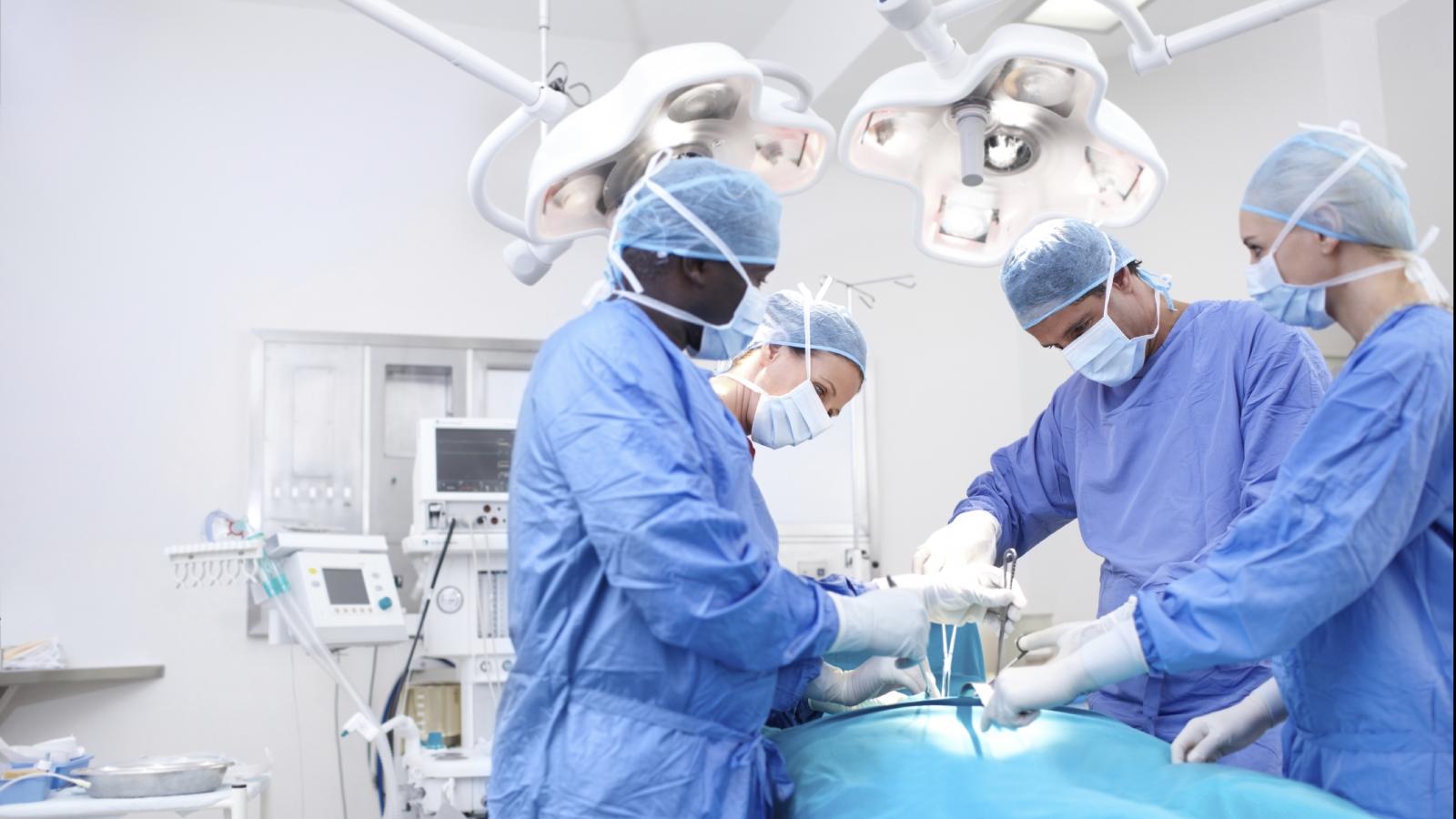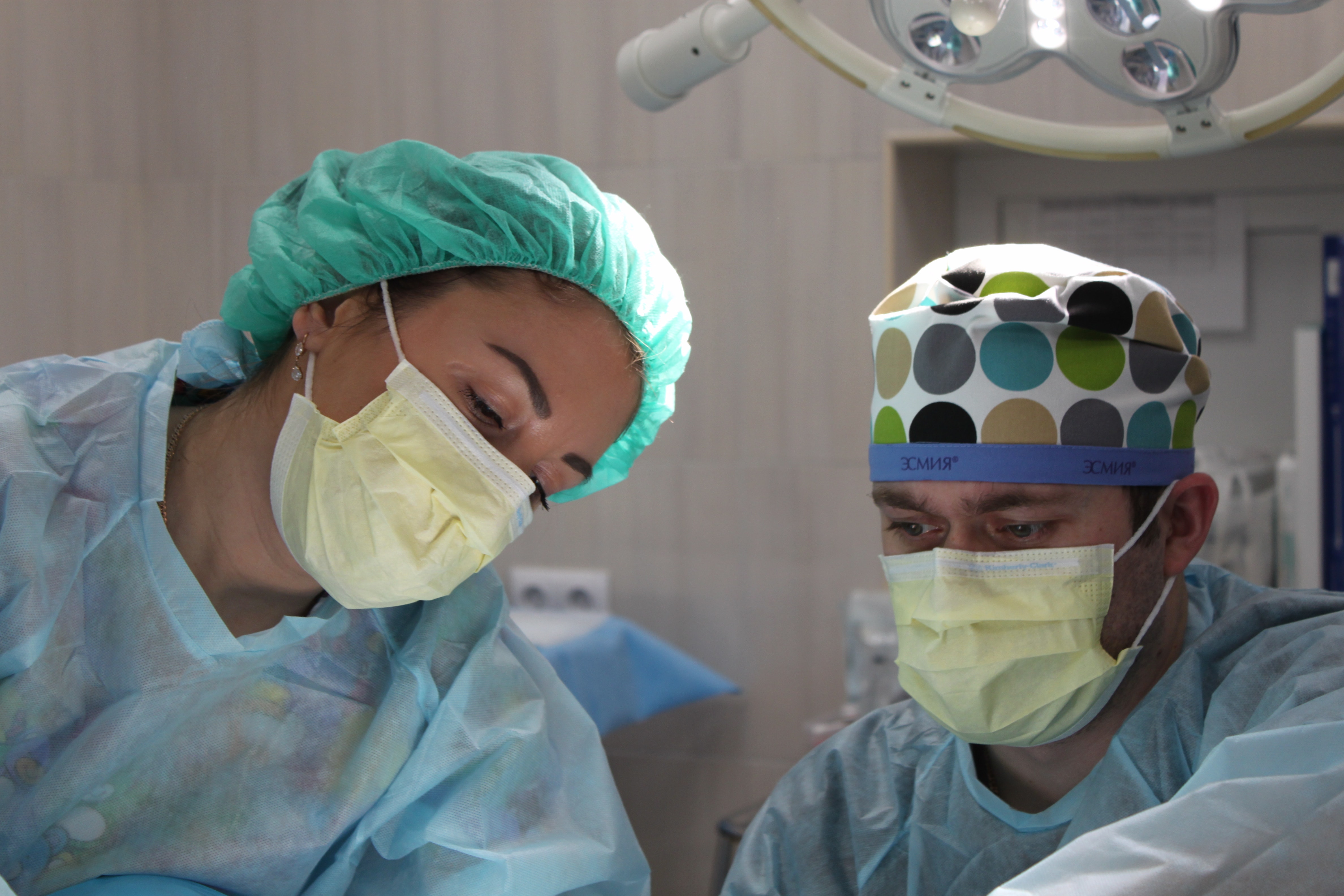Surgery for uterine (womb) cancer

Removing the cancer
A total hysterectomy is the most common surgery for uterine cancer. The uterus and cervix are removed.
A bilateral salpingo-oophorectomy removes the uterus, cervix, ovaries and fallopian tubes.
In some cases, in younger women, it may be possible to keep the ovaries. Your doctor will tell you if this is a possibility for you.
For nearly all women, keyhole (minimal access) surgery is an option. The surgery is done by making small openings (usually 4) in your abdomen or tummy wall. The uterus is then removed through the vagina.
Keyhole surgery has many benefits including a shorter hospital stay and a quicker recovery.
Removing lymph nodes
Your surgeon may remove lymph nodes to see if there are any cancer cells present.
Most commonly, the ‘sentinel’ lymph nodes are removed. These are the first nodes that the uterus drains into on each side of the pelvis. The sentinel lymph nodes are identified using a special dye injected into the cervix (neck of the womb) at the start of the operation. Once these are identified they are then removed. Generally, if these nodes are negative for cancer, the other pelvic lymph nodes are negative for cancer.
If the sentinel lymph nodes cannot be identified there may be a need to remove a greater number of lymph nodes in the pelvis. Your doctor will discuss this with you before the operation.
Will I get side-effects from surgery?
General side-effects: With all surgeries there is a small risk of bleeding and infection. Read more about general side-effects of surgery.
Risk of clotting (DVT): Surgery in your pelvis puts you at risk of clotting in the deep veins of your legs and body. This is called deep venous thrombosis (DVT). You may be given an injection to prevent this. Usually this will be continued for 4 weeks after your surgery, so you or a member of your family will be shown how to give the injection. Getting up and about and exercising your legs is most important in preventing DVT.
Infection: You will be at higher risk of infection, such as a urinary tract infection, after the surgery. Antibiotics will be given during your surgery. You may also be prescribed antibiotics after surgery. For the first few weeks, you will have a brown discharge from your vagina. If it gets heavier, foul smelling or if you have bleeding, contact your specialist nurse or doctor for advice.
Infertility: If you have a hysterectomy or radiotherapy you will no longer be able to get pregnant. Talk to your doctor if you hope to have children after this surgery. They can refer you to a fertility specialist before surgery to see what options may be open to you. In some circumstances the surgery may need to be carried out quickly and you may not have the time to see a fertility specialist. If this is the case your surgeon will discuss this with you. Dealing with infertility can be very hard. Talking through your feelings may help. Our cancer nurses can support you and give you information about free professional counselling. Call them on 1800 200 700 or visit a Daffodil Centre.
Read more about fertility and cancer treatment.
Early menopause: If your ovaries are removed you may get menopausal symptoms like hot flushes, night sweats, dry skin, vaginal dryness, decreased sex drive (low libido), low mood, poor concentration and difficulty in sleeping. Your doctor may talk to you about medication to reduce these side-effects. Read more about managing menopausal symptoms.
Lymphoedema: Lymphoedema is a build-up of fluid in your legs, which can make them swell up. This can happen any time after your surgery if your lymph glands are removed. When the glands are removed, they can no longer drain away excess fluid in your body. Let your medical team know if you notice any swelling, as lymphoedema is easier to manage the sooner it's treated. Read more about lymphoedema.
Bladder and bowel side-effects: With any surgery there is a risk of damage to the bladder, your ureters (tubes that carry urine) or bowel. If this does happen during surgery your surgeon is usually able to repair it there and then, but in some situations you may need to go back for further surgery.
Bowels may be sluggish immediately after your surgery. Constipation is very common and can take a few days to resolve. Your doctor or nurse will discuss medication to help.
For more information
Phone
1800 200 700



